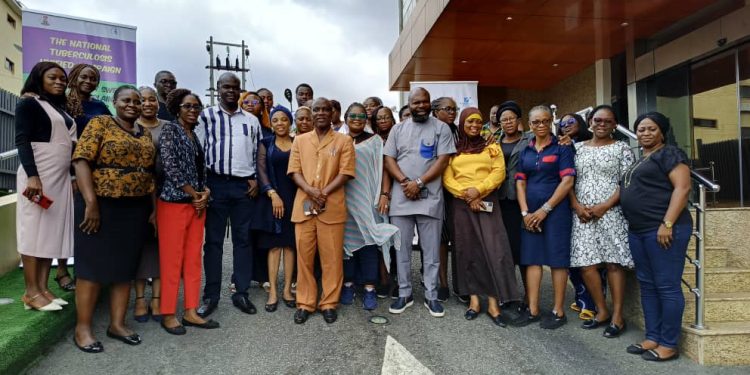Tuberculosis (TB) has been identified as one of the diseases that is preventable and curable, contrary to the myths and perceptions that many Nigerians have about the disease.
To ensure that Lagosians get adequate treatment for TB, the Lagos State Government under the National TB and Leprosy Control Programme, is providing free diagnosis and treatment to people with TB in various health facilities across the state.
This was disclosed by health experts at a one-day training for journalists on key concepts in Tuberculosis Prevention and Control, organized by the Institute of Human Virology (IHVN) in collaboration with Breakthrough Action-Nigeria (BA-N) and Lagos State Ministry of Health.
While speaking to journalists at the training, Dr. Olusola Sokoya, Deputy Director & Programme Manager, Lagos State Tuberculosis, Leprosy, and Buruli Ulcer Control Programme, explained that TB is a chronic infectious disease transmitted through the air and caused by mycobacterium tuberculosis.
Dr. Sokoya also noted that TB is one of the devastating diseases “that have impact on our health globally, not only in Lagos but the entire country at large.”
Sokoya emphasized that “TB is a preventable and curable disease. It is not a death sentence. Once you’re diagnosed with TB, you will receive treatment for free at any general hospitals, some public primary health care centers, and some private hospitals.”
Dr. Sokoya also mentioned that Lagos state started the TB intervention programme in 2003 and that the state currently contributes 11% of the National TB burden.
He said there are numerous yet-to-be-identified cases of TB and he appealed to the media to sensitize members of the public on the need to get tested and treated for TB, as it is curable, compared to other ailments like Hypertension, Diabetes or Malaria.
According to Dr. Joseph Edor, Senior Programme Officer II TB/RCCE, USAID Breakthrough Action-Nigeria, the symptoms of TB are night sweats, coughing for more than two weeks, weight loss, fever, and Hemoptysis (blood in cough).
Dr. Edor also explained that the risk factors for TB are germs and spread easily in overcrowded area, stressing that TB is often common in areas with high population density.
He encouraged people to go for testing and chest X-rays in any of the public health facilities across the state, to reduce the spread of the airborne disease.
“Once you’re treating TB, you won’t take the drugs for life. It is just for 6 months. Once you start taking the treatment and medication, you will no longer be able to transmit TB after the first two weeks,” he added.
Dr. Babajide Kadiri, the Lagos State Team Lead, USAID IHVN TB LON 3 Project, who disclosed that children can also contract TB, said TB disease in children under 15 years of age is a public health problem of social significance because it represents a recent transmission from an infectious adult.
Dr. Kadiri buttressed the need for adults and children to go for TB treatment, especially because it is free and the disease is curable.
He also warned against discrimination and stigmatization of TB patients, noting that this discourages people from continuing their treatment.
Adebisi Adetunji from BA-N earlier shared that the training was aimed at “increasing the knowledge of media personnel on TB disease and control efforts in Nigeria; Improving quality of media reporting on TB;
“Build capacity of media personnel on human-centered reporting; and strengthen linkages between the media and TB team.”

